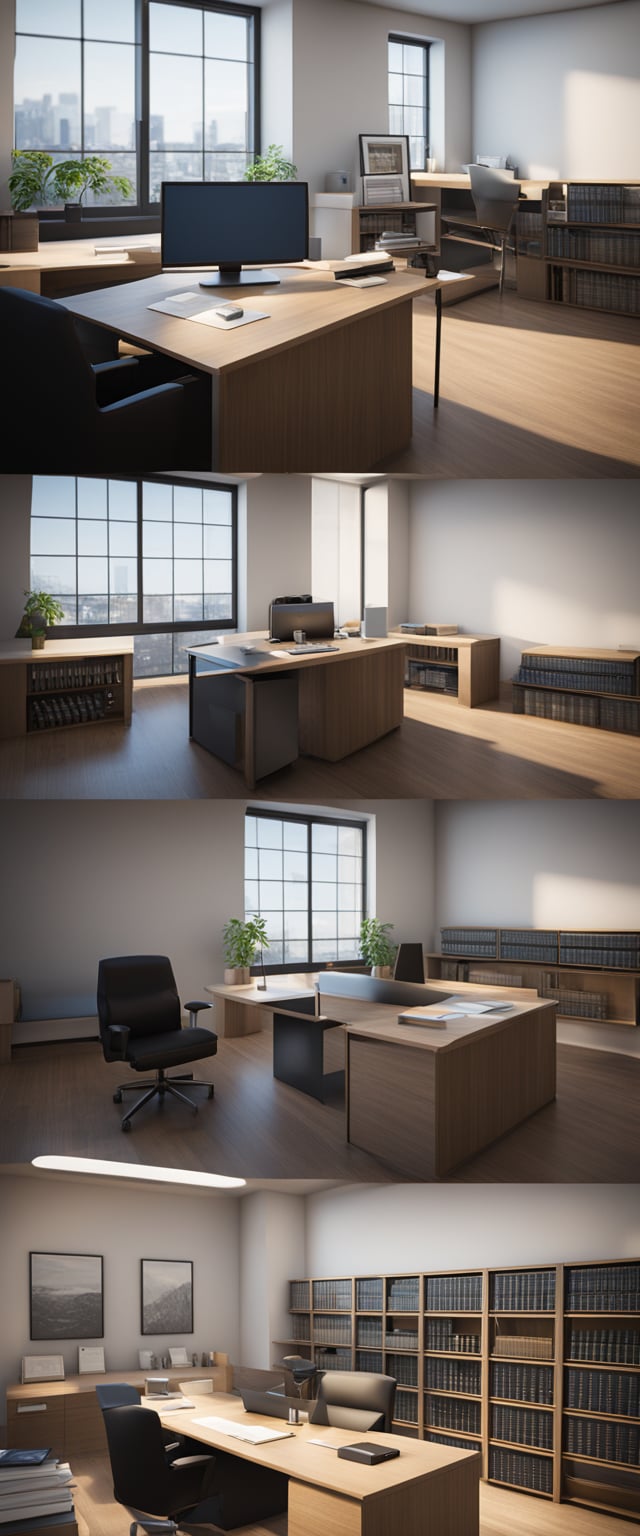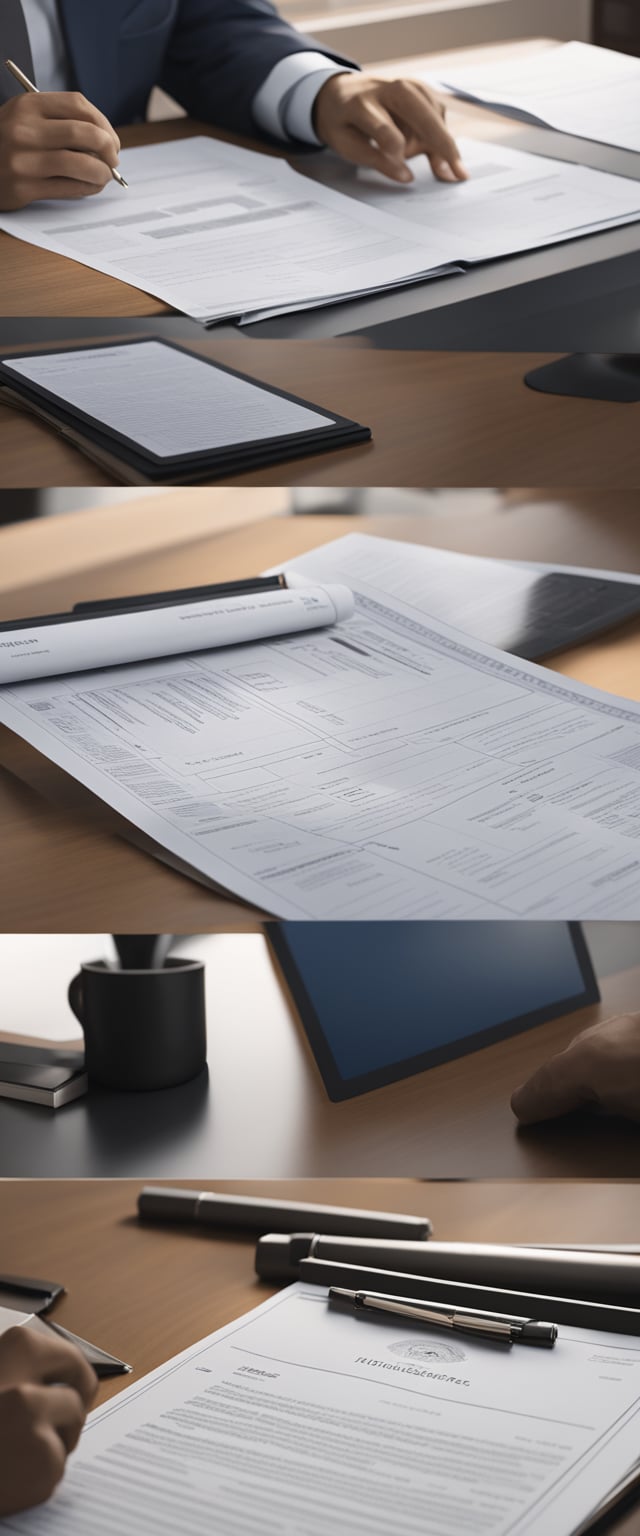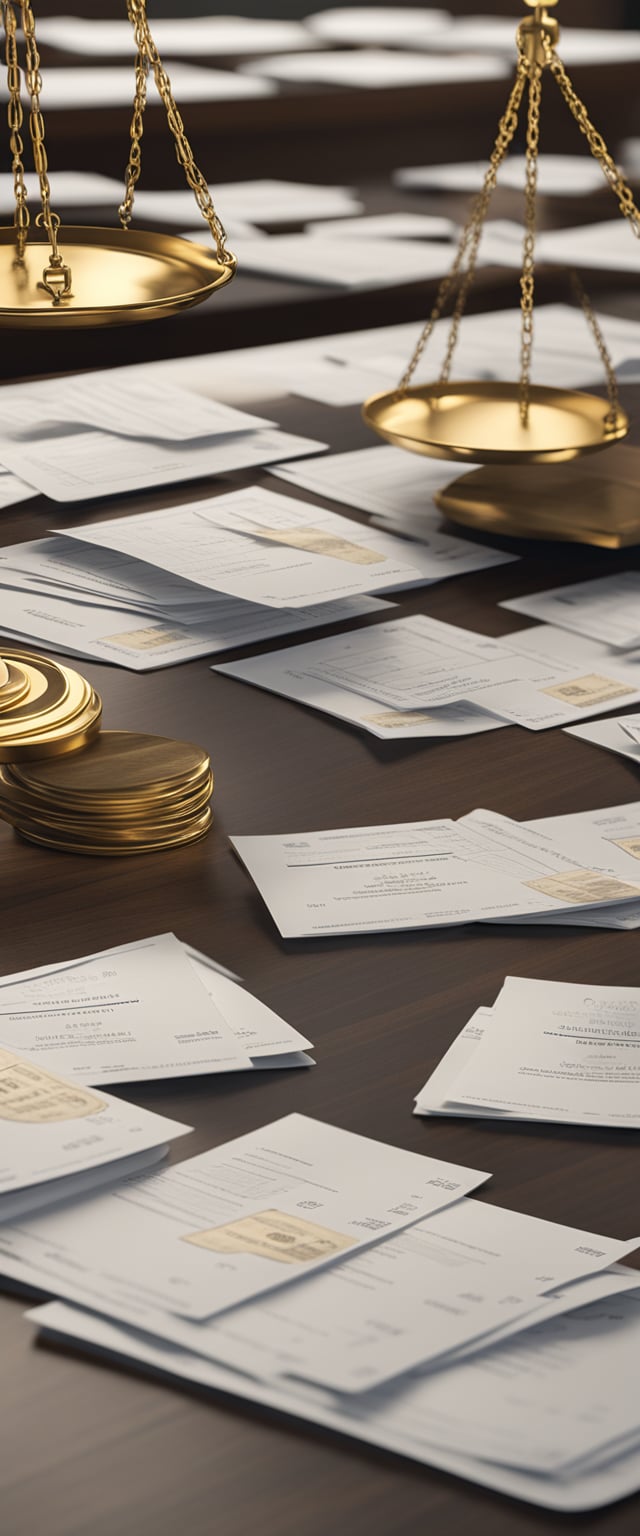Immigration Lawyer Fees for Spouse Visa Explained
Typical Immigration Lawyer Fees for Spouse Visa

Immigration lawyer fees for spouse visa applications vary depending on the complexity of the case and the region. Legal fees often include consultation, document preparation, and submission but may exclude government filing fees or additional services like appeals.
Attorney Fee Ranges
Attorney fees for spouse visa cases typically range from $1,500 to $5,000. Simple cases with minimal complications tend to fall at the lower end, while complex situations involving appeals or additional paperwork may push costs higher.
Some law firms may charge less, around $1,000, while highly experienced attorneys in major cities might charge upwards of $6,000. The price often reflects the lawyer’s reputation, location, and expertise.
Fee Structures: Flat Fee vs. Hourly Rates
Most immigration lawyers use a flat fee structure for spouse visa applications. This means the client pays a set amount that covers specific services, which helps with budgeting.
Hourly rates are less common but can range from $150 to $400 per hour. Lawyers may bill hourly if the case involves ongoing legal work beyond the initial visa petition.
Flat fees usually cover most work related to the application, while hourly rates become relevant when extra legal assistance is needed.
What Fees Include and Exclude
Flat fees often include services like case evaluation, document review, form preparation, and filing guidance. They may also cover client communication and minor follow-ups.
Legal fees do not include government filing fees, medical exam costs, translation charges, or third-party expenses. Additional fees may apply if the lawyer must handle a Request for Evidence (RFE) or an appeal.
Clients should clarify with their lawyer which services are included to avoid surprises.
Factors That Influence Lawyer Fees
Several factors affect lawyer fees for spouse visas. Cases with complicated immigration histories, prior denials, or mixed-status families often cost more.
The level of experience and specialization of the immigration attorney also impacts fees. Firms in larger cities typically charge higher rates than those in smaller towns.
Urgency can increase costs if the lawyer must expedite work or file last-minute. The amount of paperwork and the case’s legal complexity remain primary drivers of overall legal fees.
Breakdown of Costs for Marriage-Based Green Card Applications

The costs associated with marriage-based green card applications involve several key fees. These include initial petition charges, fees for status adjustment within the U.S., or consular processing abroad. Each fee targets a specific stage in the application process and varies depending on the applicant’s situation.
USCIS Filing Fees
The USCIS filing fees start with Form I-130, the Petition for Alien Relative. This form costs $535 and must be filed by the U.S. citizen or permanent resident spouse. The fee covers processing the relationship proof and beginning the immigrant visa process.
If the applicant is already in the U.S., the I-130 fee is separate from the adjustment of status fee. The initial filing fee does not include other costs like biometric fees or additional forms, which may also apply. USCIS filing fees are non-refundable regardless of the application’s outcome.
Adjustment of Status Fees
For applicants inside the U.S., Form I-485, the Adjustment of Status application, is crucial. The fee for I-485 is $1,140, plus an $85 biometric services fee, totaling $1,225 for most applicants aged 14 to 78.
This fee pays for USCIS to review the application and conduct background checks. The fee includes work and travel permit applications when filed concurrently (Forms I-765 and I-131). Fee waivers are available in rare cases but require proof of financial hardship.
Consular Processing Fees
Applicants outside the U.S. use consular processing, handled by the Department of State. After USCIS approval of Form I-130, the applicant pays the immigrant visa fee, usually $325.
In addition, there is a $120 affidavit of support fee the petitioner pays to the National Visa Center. Medical exam fees are separate and vary widely by country. These fees cover visa issuance but exclude travel and other personal expenses.
Services Included in Spouse Visa Legal Representation

Legal representation for a spouse visa covers specific tasks essential to increasing the chances of approval. It typically includes petition handling, gathering necessary documents, and assistance during interviews or hearings.
Petition Preparation and Review
The attorney prepares the I-130 petition or equivalent forms, ensuring accuracy and completeness. They verify eligibility requirements and confirm all information aligns with US immigration standards.
Legal help also involves reviewing the petition before submission to catch errors that could cause delays or rejections. The lawyer advises on common pitfalls, such as incorrect evidence of marital status or misunderstandings about the sponsor’s eligibility.
They ensure the petition clearly establishes the bona fide nature of the marriage. This step is critical to avoid requests for additional evidence or outright denial.
Supporting Document Collection
Collecting supporting documents involves organizing evidence that proves a genuine marriage and meeting visa qualifications. This includes marriage certificates, joint financial records, photographs, and affidavits from family or friends.
The lawyer guides foreign nationals on which documents are mandatory and which strengthen the case. They confirm documents meet formatting standards and translations are properly certified if needed.
Proper documentation reduces the risk of processing delays. The attorney may help obtain documents from government agencies or translate foreign records to comply with US immigration requirements.
Attending Interviews or Hearings
Legal representation often includes attending USCIS interviews or immigration court hearings with the applicant and sponsor. The attorney prepares clients by explaining potential questions related to their relationship and visa eligibility.
During interviews, the lawyer ensures correct legal procedure is followed and advocates on behalf of the applicant. They can clarify answers, correct misunderstandings, and address any concerns raised by immigration officers.
If a hearing is needed, the attorney presents the case, submits evidence, and cross-examines witnesses. Their presence can significantly affect the outcome by providing knowledgeable legal arguments.
Marriage Visa Application Process and Attorney Involvement

The marriage visa application process demands careful attention to detail and strict adherence to deadlines. An experienced immigration attorney can provide crucial support in navigating filing steps, assessing individual circumstances, and advising on possible waivers to strengthen an application.
Initial Consultation and Case Assessment
During the initial consultation, the attorney reviews the applicant’s immigration situation and marriage details to determine eligibility. This session is essential to identify potential challenges and required documents.
The consultation often includes discussion of previous immigration history, criminal records, and financial evidence. By evaluating these factors, the attorney can tailor advice to the client’s specific situation and outline clear next steps.
Filing Procedures and Deadlines
Properly filing a marriage visa requires submitting forms such as the I-130 and supporting documents within strict deadlines. An attorney helps ensure all paperwork is accurate and complete, reducing the risk of denial or delays.
Deadlines for evidence submission, biometrics appointments, and interviews are critical. An immigration lawyer monitors these schedules and guides the client in timely compliance.
Guidance on Potential Waivers
Certain circumstances, like unlawful presence or criminal history, might require waivers for a successful application. An experienced immigration attorney evaluates if a waiver applies and prepares the necessary legal arguments.
The lawyer advises the client on risks and documents needed to strengthen the waiver request. This guidance can be decisive in overcoming obstacles during the visa process.
Comparing Spouse Visa Legal Fees Across Law Firms

Spouse visa legal fees vary widely depending on factors such as geographic location, law firm reputation, and lawyer experience. These differences affect the total cost and quality of service a client may receive. Understanding these key variables helps applicants choose a firm that aligns with their budget and case needs.
Price Variation by Location and Experience
Legal fees for spouse visa applications fluctuate significantly across regions. For example, firms in major cities or high-cost states often charge higher rates due to increased overhead. In contrast, smaller towns may offer lower fees but with varying levels of service.
Experience also impacts pricing. Lawyers registered with the American Immigration Lawyers Association (AILA) or those with many successful spouse visa cases typically command higher fees. Less experienced attorneys or non-specialists might offer cheaper rates but could lack expertise in complex immigration matters.
Clients should compare hourly rates, flat fees, and consultation charges when reviewing price differences. A typical fee range for spouse visa applications is between $2,500 and $5,000, depending largely on these factors.
Evaluating Law Firms and Attorney Experience
The reputation and specialization of a law firm are crucial when evaluating spouse visa legal fees. Firms focusing exclusively on immigration law generally provide more in-depth knowledge than general practice firms. Lawyers who maintain active AILA membership tend to stay updated on policy changes, benefiting their clients.
Reviewing case success rates and client testimonials can also indicate a lawyer’s competence. Firms that offer detailed fee structures and transparent billing practices are often more trustworthy.
Applicants should look for attorneys who have handled cases similar in complexity, especially if additional documentation or legal challenges are expected.
Questions to Ask About Fees
When consulting prospective lawyers, clients should clarify what is included in the quoted fee. Key questions include:
- Does the fee cover filing costs, translations, or government fees?
- Are there additional charges for follow-up communication or document preparation?
- Is the fee a flat rate or hourly?
- What are the payment deadlines and refund policies if the application is denied?
Asking these questions helps avoid unexpected expenses and ensures clear understanding of the financial commitment involved in the spouse visa process.
Additional Expenses in Marriage-Based Immigration Cases

Marriage-based immigration cases involve more than just lawyer fees. Applicants should be prepared for government charges, third-party fees, and other necessary costs like translations and medical exams.
Third-Party and Government Fees
Government application fees are a significant part of the total cost in spouse visa or green card cases. For example, the USCIS filing fee for Form I-130 (Petition for Alien Relative) is $535, while Form I-485 (Adjustment of Status) costs $1,140 plus an $85 biometrics fee. These fees are mandatory and not included in lawyer charges.
Other third-party fees may include fingerprinting, background checks, and USPS mail fees for document delivery. Fees can vary by location. Some costs must be paid upfront to government agencies before processing begins.
Translation, Medical, and Delivery Costs
Applicants often need certified translations of documents not in English. Translation fees depend on document length and complexity but typically range from $20 to $50 per page. Accurate translation is crucial for avoiding delays.
Medical examinations required by USCIS must be done by an approved civil surgeon. Costs for exams and vaccinations vary by provider, usually between $200 and $500. Applicants cover these fees themselves.
Delivery costs for sending original documents or application packets through courier services or express mail add another expense layer. These services cost $20 to $60 depending on method and distance.
Common Legal Issues Affecting Spouse Visa Fees

Legal complexities in spouse visa cases often influence the overall cost. Specific challenges, such as proving the legitimacy of the marriage and responding to additional government inquiries, can increase fees due to required documentation and legal work.
Addressing Marriage Fraud Concerns
Marriage fraud is a critical issue that immigration officers scrutinize closely. When suspicion arises, lawyers must gather extensive supporting documents to verify the authenticity of the relationship, such as joint financial records, correspondence, and affidavits.
This process demands extra time and legal expertise to prepare detailed evidence and sometimes to conduct interviews or inquiries. The added work generally increases legal fees. Spouses must be prepared for deeper investigation, which can prolong the case and intensify costs.
Responding to Requests for Evidence
Requests for Evidence (RFEs) are common in family-based immigration cases and require prompt, thorough responses. Legal fees rise as attorneys review the RFE, collect necessary documents, and draft detailed submissions to satisfy government requirements.
RFEs often involve sensitive or complex evidence, such as explanations of discrepancies in documents or proof of ongoing relationship. Quick, accurate responses reduce risks of delays or denials but require significant lawyer involvement, impacting overall fees.
Spouse Visa Fees for Special Situations

Certain spouse visa cases involve additional fees and requirements based on unique circumstances. These can include K-1 fiancé visa processing, waivers for inadmissibility, and specific sponsorship obligations.
K-1 Fiancé Visa Cases
The K-1 visa allows a foreign fiancé(e) of a U.S. citizen to enter the U.S. to marry within 90 days. The petition fee for Form I-129F is currently $535. After approval, the fiancé(e) pays a visa application fee of about $265.
Legal fees for K-1 visas often include assistance with both the petition and adjustment of status after marriage. These fees vary widely but typically range between $2,000 and $5,000 depending on complexity and attorney experience.
Additional medical exam and USCIS biometrics fees may apply. Once married, the applicant files for permanent residence, which involves separate fees and forms.
Waivers for Inadmissibility or Unusual Circumstances
Applicants barred for reasons such as past immigration violations or criminal history may require waivers. Filing a waiver involves submitting Form I-601 or I-601A, with a filing fee of $930.
Legal assistance becomes crucial in waiver cases to prove hardship or eligibility. Fees for waiver applications depend on complexity but often add $1,000 to $3,000 to overall costs.
Processing times for waivers can be lengthy, affecting total expenses. Not all inadmissibility grounds qualify for waivers, so thorough case evaluation is essential.
Sponsorship and Financial Support Requirements
The sponsor must file Form I-864, the Affidavit of Support, showing adequate income to support the spouse. There is no separate USCIS fee for this form, but errors can delay the visa.
Meeting the 125% federal poverty guideline is mandatory, and joint sponsors may be needed if income requirements are not met. Legal advice often helps navigate financial documentation to avoid rejections.
Failure to meet sponsorship criteria can result in denied applications and additional expense when resolving issues. Attorneys generally charge hourly or flat fees to assist with the financial portion of the spouse visa process.

Leave a Reply